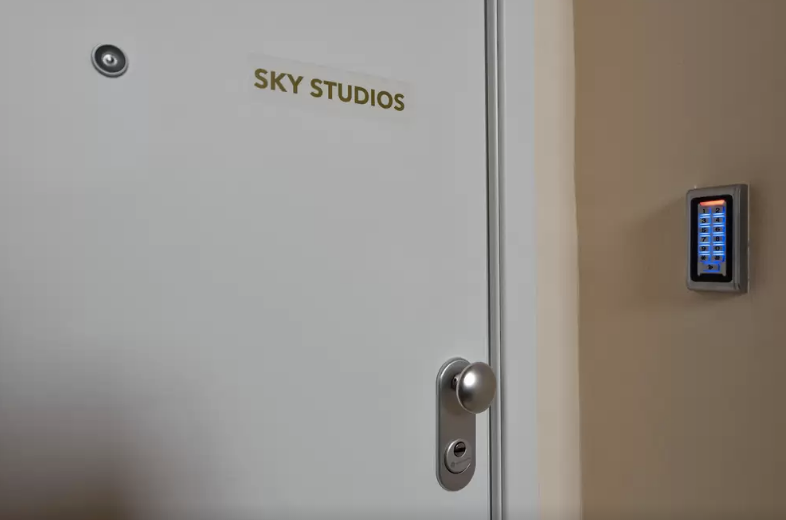We’ve stayed in a number of Air BnB apartments since leaving New Zealand in April. Along the way, the hosts we’ve met have become central to the experiences we’ve enjoyed.
In our last stop, Zagreb, we decided to try out a listing that offered self-check in and out. We arrived later in the day and weren’t sure of our exact plans so it seemed perfect. It was all extremely well organised in the lead up. We were emailed instructions on arriving at the building and navigating the 3 locked doors to enter our apartment.

The main door was 15 cm think, metal and electronically locked. You had to step into the door, similar to entering a bank vault. Our door keys were in a lock box outside the door. It felt like a treasure hunt.
Throughout the apartment laminated notes were stuck next to light switches and appliances to explain how to use them. The basic introductory tips you usually get from your host on arrival like the wi-fi password and where to leave the key on departure. They were functional, and to the point.

The apartment was minimally decorated, with little attention to comfort but lots of focus on technology. There were powerpoints galore, reliable wi-fi and a LED light fitting that changed any colour you wanted. It felt like we were staying in the future.
It was efficient yet soulless.
If you’d arrived on a business trip and wanted to avoid all human contact it was perfect. However, we’ve come to love the human connections that Air BnB provides. In Belgrade, we had a family breakfast of Uštipci cooked by our host Bane. In Dubrovnik, we had beers with our host Igor in a local bar that charged about 1/5 of the tourist one next door. We also invited him to visit us in NZ after discovering it was his father’s lifelong dream.
We’ve learnt how to say “cheers” in, at least, 6 languages (Proost! Salute! Eviva! Gesondheid! Živjeli! Santé!).
We had less than 24 hours in Zagreb. It’s hard to find the gems of a city without local knowledge. We arrived late and were keen for a quick dinner. We wandered the streets around our apartment. There were plenty of people seated in outdoor tables but it turns out they were all bars with no food options. After a while we gave up and purchased food at a grocery store. I would have loved to know from a local where they’d recommend to go!
I realised I didn’t feel like I’d actually visited Zagreb, because we hadn’t meet anyone who lived there. A city isn’t buildings and roads, it’s people and their stories.
This was my first hosting experience, and it completely changed my perspective. Maybe the people that my childhood taught me to label as strangers were actually friends waiting to be discovered. ~ Joe Gebbia, Co-Founder of Air BnB
Inviting strangers to share the intimacy of our homes was the foundation for why Air BnB was first started. As more businesses start running apartments on the platform, it’s harder to find those gems. What we enjoy about meeting our hosts, is hearing their enthusiasm for the place they live. The places that they recommend and love to go. This passion is rarely heard from a hotel concierge.
A survey by Skift, on the Professionalisation of Air BnB hosts, showed 44% of Air BnB revenue comes from hosts with multiple listings. Only 1% of bookings are in shared rooms, or couchsurfing, as the site’s origins were. This dilution of individual Air BnB hosts makes the experience start to feel like other travel platforms.
44% of Air BnB revenue comes from hosts with multiple listings. Only 1% of bookings are in shared rooms.
This change is inevitable as the mass market of travel demands private rooms and whole apartments. The gap between an Air BnB apartment and a hotel room lessens when you remove the human connection. When I go to review our Zagreb apartment, how do I sum up this disappointment? It doesn’t come under the usual tick boxes of “cleanliness” or “location”. Is failure to delight a fair criticism?
With our fascination with bots and automation, it is possible to lose sight of the importance of human connection. But it is these human connections that surprise and delight. These are the touch points we share and remember. These are the moments that bring together communities. They are the travel stories we retell once home.
When was the last time you questioned how you could make your marketing more human? Rather than more automated? It’s these moments when we can surprise and delight, leaving a lasting impression that people want to share with others.
